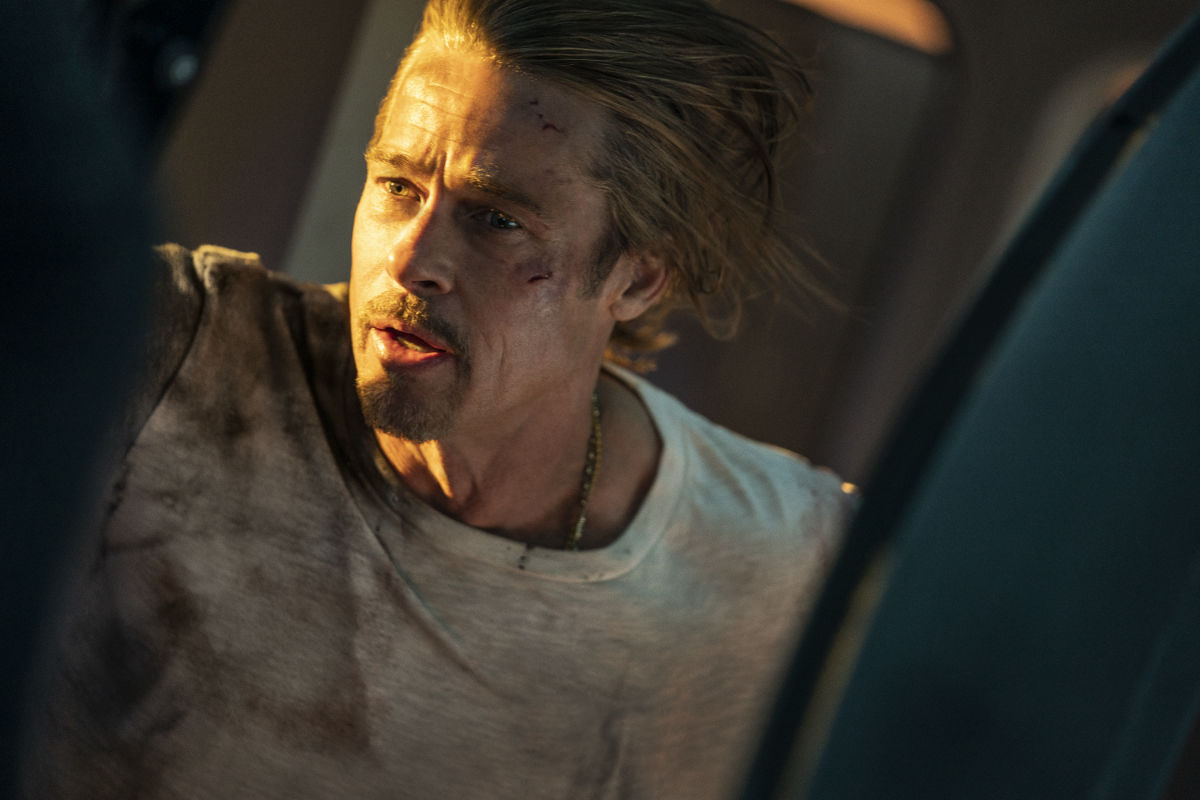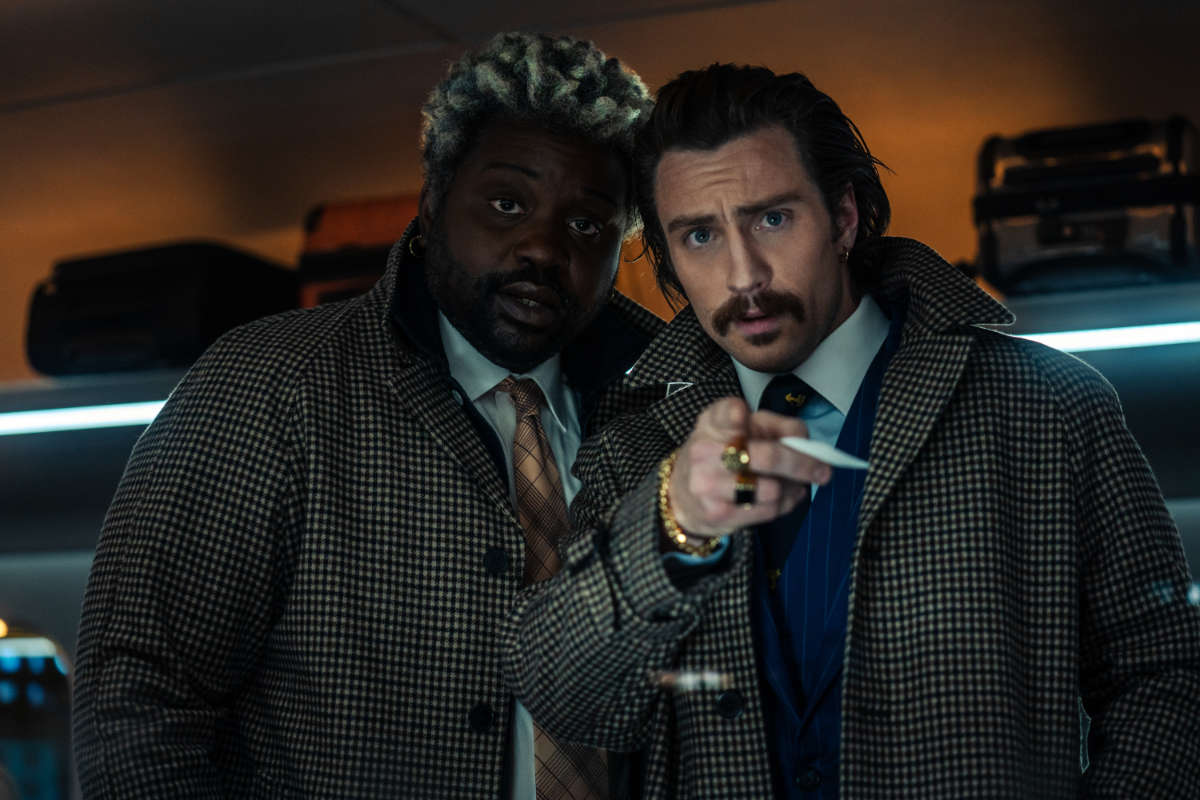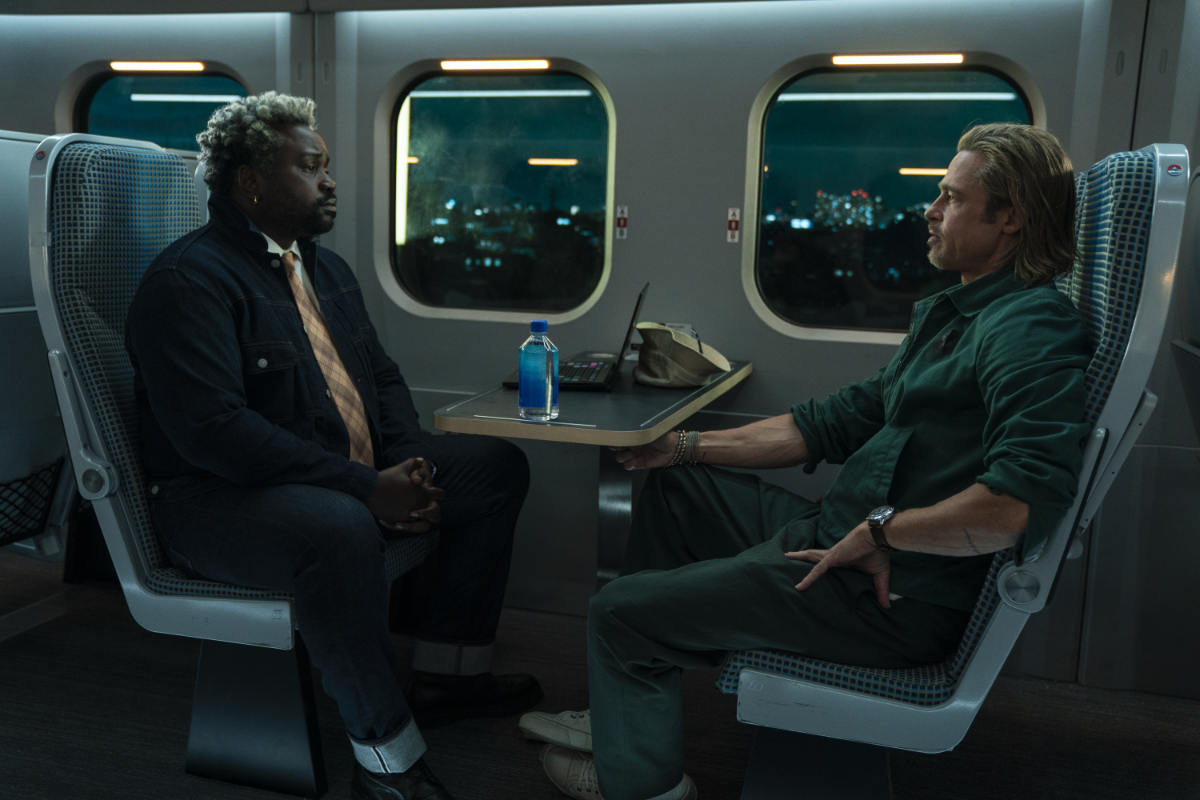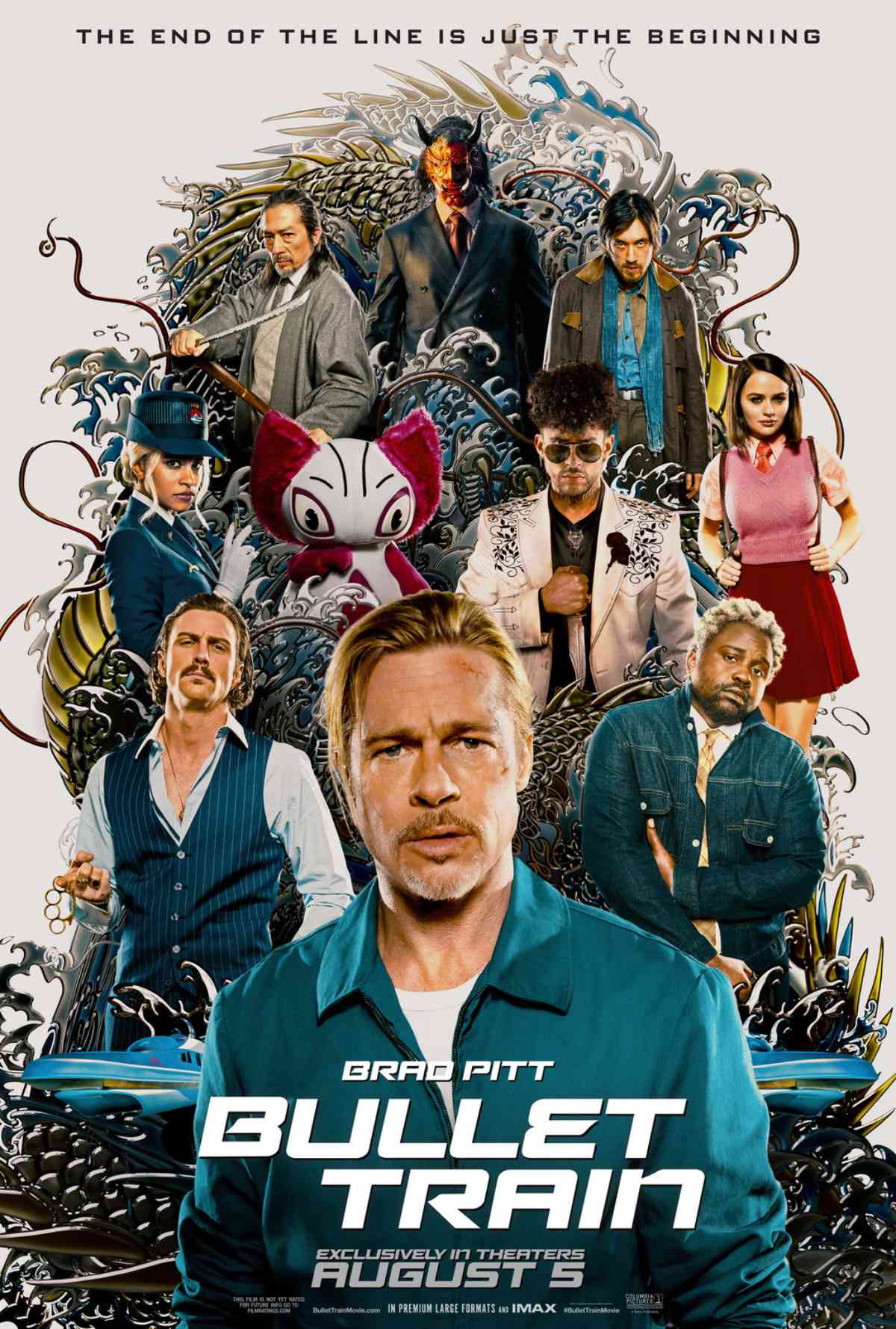Bullet Train Review
Pretty, lighthearted, charming, and as fleeting as its namesake, Bullet Train is also a pointless exercise in action filmmaking from 25 years ago but has little to offer today.
Filled with nameless, unformed characters thrown back in and forth in time in a constant struggle to provide both context and surprise, Bullet Train‘s inability to simply commit to a story (or even fully decide what the story is) suggests its filmmakers know how hollow the whole pursuit is and hope to distract from it with new, shiny baubles.

When Quentin Tarantino toyed with timelines and flashbacks in his first breakthrough work, he challenged up-and-coming filmmakers to chop his cuts of Pulp Fiction or Kill Bill up and reorganize them into their linear elements, confident that they had been built in such a way that even being completely reconstituted the essential elements of the story would remain whole.
Attempting to do similar to Bullet Train would give us a mashed-up jigsaw of short punchlines without setups and the pace of a speed-up music video. The plot is a mash-up of flashbacks and asides, constantly attempting to change our understanding of scenes rather than make them work on their own.

It starts with unhappy assassin Ladybug (Brad Pitt) taking a last-minute job to steal a briefcase from a bullet train traveling between a cartoon version of Tokyo and a painter’s landscape of Kyoto and almost no people in between.
No sooner has he boarded, however, before he passes Tangerine (Aaron Taylor-Johnson) and Lemon (Brian Tyree Henry), a pair of established killers in their own right (who replace humanity with an obsession over Thomas the Tank Engine as a stand-in for understanding character) and activating the first extended aside as they argue about the number of kidnappers they actually killed rescuing the ne’er-do-well son (Logan Lerman) of a Yakuza boss.

It’s meant to be funny and informative of who these people are, but the only thing these asides accomplish is to occlude the real people behind the code names, giving us instead only ersatz characters with ersatz emotions it is impossible to latch on to.
It’s the sort of thing that was innovative and fun when Tarantino and Guy Ritchie and others experimented with this sort of thing in the mid-90s and early 2000s, but besides feeling hopelessly old-fashioned now, it’s also hopelessly overdone. It works when it is focused on a single character, adding depth to them without slowing down the momentum of the story.

Bullet Train has so many of these pieces to juggle any attempt to explain it begins to look like a serial killer’s mood board, from the low-level gangster (Andrew Koji) looking for the person who pushed his son off a building to a cartel assassin (Bad Bunny) looking for revenge to a smarmy teen traveler (Joey King) pulling everyone’s strings. The plot becomes the ouroboros snake forever eating its own tale.
Pitt himself is as charming as he has ever been, pushing against the typical action hero archetype as a low-key thug in therapy, looking for low-conflict, low-stress work while completely aware of the irony relative to what he does for a living.

Stuck in the middle of the expanding chaos aboard the train, beginning The Son’s mysterious poisoning and the introduction of an insane Russian mob boss watching everything happening aboard, Ladybug bounces from accidental fight to accidental fight, more interested in getting off the train than understanding anything going on around him.
He is Bullet Train, in a nutshell, our viewpoint into this strange world who spends more time talking to Sandra Bullock’s disembodied voice on his phone than anyone around him.

His hanger-on status removes him from anything happening and frequently reduces him to part of the audience rather than a participant, letting more active and interrogative players like Tangerine and Lemon take the spotlight from him because they at least relate to one another. No one else has that opportunity, they exist for brief surprise; it’s a film of cameos not characters.
A tightly plotted crime caper in a limited environment and cast, on its surface, Bullet Train seems like it would benefit from a small scope to focus on the tension of the plot and give the characters the freedom to react. Director David Leitch wants to go big, as big as he can, up to and including bombings, gun fights, and train derailments amid somnambulant train riders who only seem to notice when someone raises their voice in the quiet car.

Part comedy, part action film, part thriller, part waste of time, Bullet Train would have seemed like a clever take on the standard action thriller 25 years ago, but now it’s just old hat, and not all the star power in the world can cover that up.
BULLET TRAIN REVIEW SCORE: 5 OUT OF 10
Opening in theaters on August 4, Sony Pictures‘ Bullet Train is rated R for strong and bloody violence, pervasive language, and brief sexuality.

